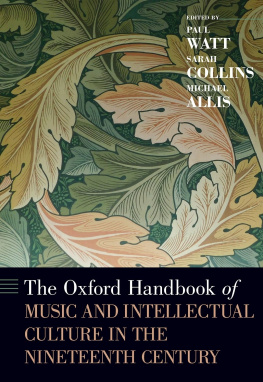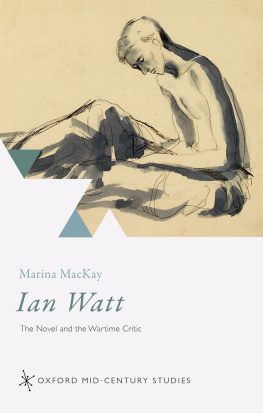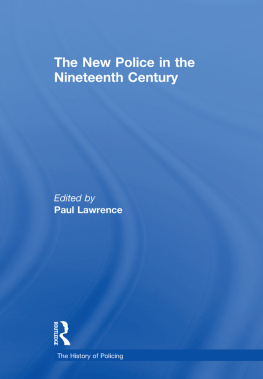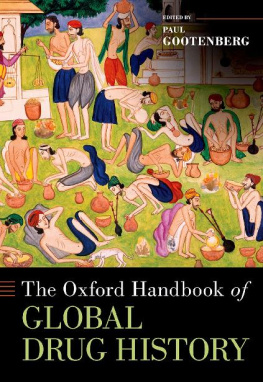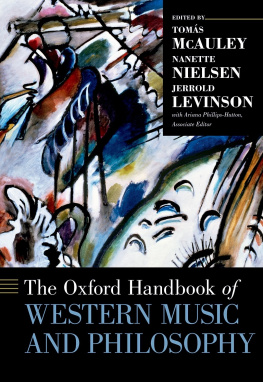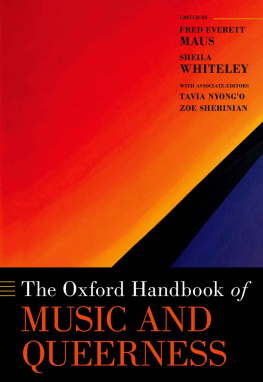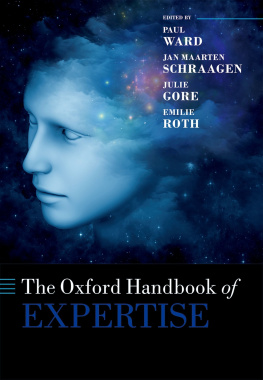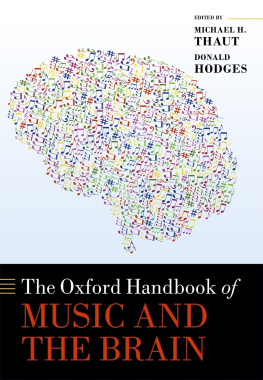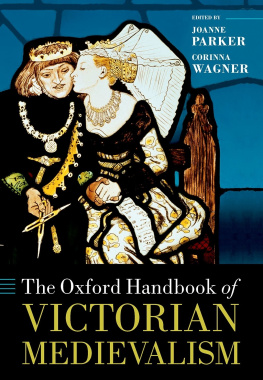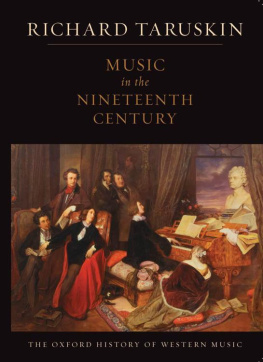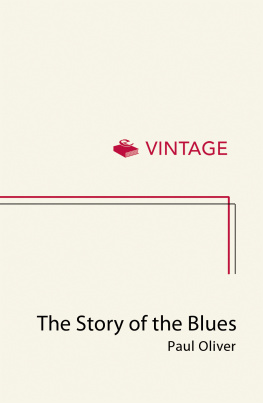Paul Watt - The Oxford Handbook of Music and Intellectual Culture in the Nineteenth Century
Here you can read online Paul Watt - The Oxford Handbook of Music and Intellectual Culture in the Nineteenth Century full text of the book (entire story) in english for free. Download pdf and epub, get meaning, cover and reviews about this ebook. year: 2020, publisher: OxfordUP, genre: Art. Description of the work, (preface) as well as reviews are available. Best literature library LitArk.com created for fans of good reading and offers a wide selection of genres:
Romance novel
Science fiction
Adventure
Detective
Science
History
Home and family
Prose
Art
Politics
Computer
Non-fiction
Religion
Business
Children
Humor
Choose a favorite category and find really read worthwhile books. Enjoy immersion in the world of imagination, feel the emotions of the characters or learn something new for yourself, make an fascinating discovery.
- Book:The Oxford Handbook of Music and Intellectual Culture in the Nineteenth Century
- Author:
- Publisher:OxfordUP
- Genre:
- Year:2020
- Rating:3 / 5
- Favourites:Add to favourites
- Your mark:
- 60
- 1
- 2
- 3
- 4
- 5
The Oxford Handbook of Music and Intellectual Culture in the Nineteenth Century: summary, description and annotation
We offer to read an annotation, description, summary or preface (depends on what the author of the book "The Oxford Handbook of Music and Intellectual Culture in the Nineteenth Century" wrote himself). If you haven't found the necessary information about the book — write in the comments, we will try to find it.
Paul Watt: author's other books
Who wrote The Oxford Handbook of Music and Intellectual Culture in the Nineteenth Century? Find out the surname, the name of the author of the book and a list of all author's works by series.
The Oxford Handbook of Music and Intellectual Culture in the Nineteenth Century — read online for free the complete book (whole text) full work
Below is the text of the book, divided by pages. System saving the place of the last page read, allows you to conveniently read the book "The Oxford Handbook of Music and Intellectual Culture in the Nineteenth Century" online for free, without having to search again every time where you left off. Put a bookmark, and you can go to the page where you finished reading at any time.
Font size:
Interval:
Bookmark:


Oxford University Press is a department of the University of Oxford. It furthers the Universitys objective of excellence in research, scholarship, and education by publishing worldwide. Oxford is a registered trade mark of Oxford University Press in the UK and certain other countries.
Published in the United States of America by Oxford University Press
198 Madison Avenue, New York, NY 10016, United States of America.
Oxford University Press 2020
All rights reserved. No part of this publication may be reproduced, stored in a retrieval system, or transmitted, in any form or by any means, without the prior permission in writing of Oxford University Press, or as expressly permitted by law, by license, or under terms agreed with the appropriate reproduction rights organization. Inquiries concerning reproduction outside the scope of the above should be sent to the Rights Department, Oxford University Press, at the address above.
You must not circulate this work in any other form and you must impose this same condition on any acquirer.
Library of Congress Control Number: 2020938282
ISBN 9780190616922
ebook ISBN 9780197500682
1 3 5 7 9 8 6 4 2
Printer line: Printed by Marquis, Canada
Introduction: Music and Intellectual Culture in the Nineteenth Century
Paul Watt , Sarah Collins, and Michael Allis
History, Historicism, Historiography
Kevin C. Karnes
Criticism
Noel Verzosa
Figures and Forms of Analysis Practice
Rmy Campos
Biography and Life-Writing
Christopher Wiley
Travel Writing
Michael Allis
Philosophy and Aesthetics
Lawrence Kramer
Fiction and Poetry
Michael Halliwell
Ephemera
Catherine Massip
Newspapers, Little Magazines, and Anthologies
Paul Watt
Learned Societies, Institutions, Associations, and Clubs
Jeremy Dibble
Churches and Devotional Practice
Martin V. Clarke
Libraries and Archives
Mattias Lundberg
Universities and Conservatories
Peter Tregear
The Concert Series
Simon McVeigh
Musical Canons
William Weber
Landscape and Ecology
Daniel M. Grimley
The National and the Universal
Sarah Collins
Science and Religion
Bennett Zon
Popular Song and Working-Class Culture
Gillian M. Rodger
Emotions
Michael Spitzer
Time and Temporality
Benedict Taylor
Ethics
Toms McAuley
Music Scholarship and Disciplinarity
Michel Duchesneau
What determines the way we talk, write, and think about music of the nineteenth century? In periods of intensified disciplinary self-reflection such as our own, these activities attract ethical and political imputations that lend the question a high degree of urgency. At other times, this question seems almost peripheral or incidental, and its history is at best a marginal concern. After all, many view music as primarily a sounding art, and therefore one that engages us first and foremost through the experience of listening or participation. When we analyze music, and begin to think about formal structure, style, and meaning, and when we consider these things with reference to contextual and historical factors and their broader social significance, we are typically taken to be reflecting on different facets of these ways of experiencing music. When, however, the activity of reflection itself becomes the object of study, we are conventionally held to be no longer dealing with music. The implication then is that the history of the idea of music is not a legitimate topic of musicological reflection when it is considered separately from specific musical works or musical experiences.
This prevailing view issues from a skepticism toward approaches that seem to abstract their object of investigation from social context and conditions of production. It is commonplace, for example, to look critically upon histories of music that cast it as if it were abstracted or autonomous in this way. It has often been argued that this type of history necessarily favors elite musics and Western (particularly European) cultures, promotes a linear view of music history in terms of progressive development, and fetishizes musical texts as embodying timeless truths. In one sense, the history of ideas about music is often viewed in a similar way. Creativity does not occur in a vacuum, we are told, and treating ideas as if they somehow float above social reality and interact only with other ideas along their own autonomous historical trajectory is perhaps an even worse scholarly crime than writing an autonomous history of musical style, because at least the latter deals with music itself.
A similar form of skepticism can be seen across the humanities over the last half a century at least, where it has been directed not only against formalist approaches but also against intellectual history. Intellectual history has often been criticized for focusing on the ways that ideas are presented (including discursive conventions, the use of language and rhetorical patterns), in preference to the practices and larger forces that shaped those forms of representation. This is not merely a question of text versus context, because discursive conventions are themselves a type of context, just as the idea of musical style is a contextual category. It is more a question of whether ideas are simply a reflection of other, putatively more real, thingslike forms of social organization, the movement of money, the division of labor, or the everyday activities of peopleor whether they are in fact indistinguishable from these things, or entirely separate from them. Intellectual history has sometimes been seen as assuming that ideas inhabit a separate realm from social life, and conversely social history often assumes that ideas are mere reflections of social life (McMahon and Moyn ).
Font size:
Interval:
Bookmark:
Similar books «The Oxford Handbook of Music and Intellectual Culture in the Nineteenth Century»
Look at similar books to The Oxford Handbook of Music and Intellectual Culture in the Nineteenth Century. We have selected literature similar in name and meaning in the hope of providing readers with more options to find new, interesting, not yet read works.
Discussion, reviews of the book The Oxford Handbook of Music and Intellectual Culture in the Nineteenth Century and just readers' own opinions. Leave your comments, write what you think about the work, its meaning or the main characters. Specify what exactly you liked and what you didn't like, and why you think so.

